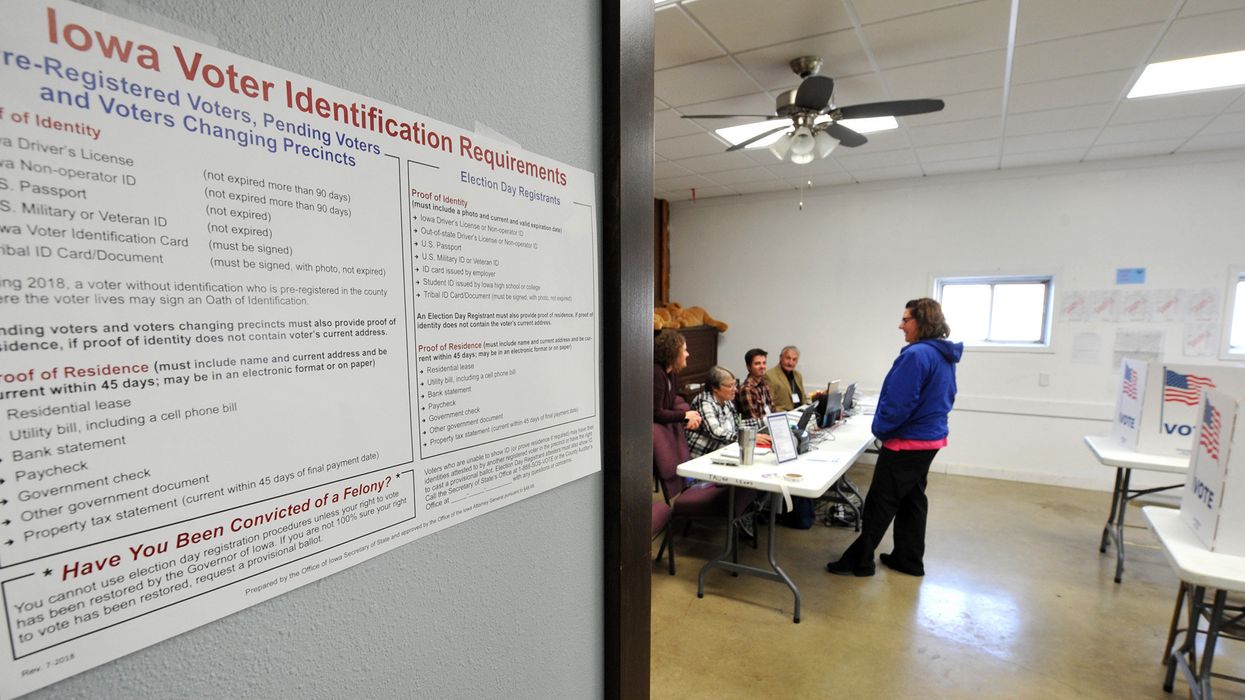A law compelling Iowans to present a valid ID before voting, and another requiring a voter identification number on every absentee ballot request, have survived a court challenge.
But the same state judge who upheld those measures this week, Joseph Seidlin, also struck down two other provisions of a package enacted in 2017 in the name of combatting election fraud. One would have barred the use of an Iowa driver's license or state identification card to get a voter ID. The other would have allowed local election officials to block a voter if they believed in-person and on-file signatures didn't match.
The lawsuit was brought by the Hispanic civil rights group LULAC and an Iowa State University student and financed by the Democratic campaign group Priorities USA, who said all four provisions would suppress turnout and disenfranchise people — especially Latinos, who vote absentee in big numbers in a politically purple state that will have six hotly contested electoral votes next year.
"The evidence presented simply did not demonstrate that the burden on young voters, old voters, female voters, minority voters, poor voters and voters who are Democrats to show an approved form of identification at the polls is appreciably greater than the rest of the population," the judge said.
GOP Secretary of State Paul Pate said he was considering an appeal of the decision by Seidlin, who said the two provisions he struck down were in violation of the Iowa constitution.
The law was enacted two years ago, but in last year's midterm people who showed up at the polls without an ID were allowed to sign an affidavit promising they were who they said they were. About 11,000 did so. But starting next November, those lacking acceptable identification will have to cast a provisional ballot, then return with an ID within a few days for their ballot to count.
Iowa and 34 other states require an ID before voting, and half those states require a photo card, the National Conference of State Legislatures says. Proposals for photo ID requirements in Montana and Wyoming were rejected in those legislatures this year.




















